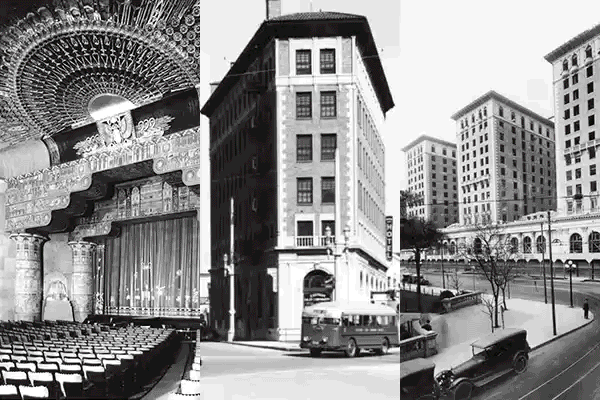Business and civic leader Rocco Siciliano dies at 96
Rocco Carmine Siciliano, a Los Angeles business and civic leader who served four presidents, has died. He was 96.
Siciliano passed away Nov. 6 at his home in Beverly Hills of natural causes, his son John Siciliano said.
As a trustee for the J. Paul Getty Trust, Siciliano played a key role in founding the Getty Center, including finding its hilltop home in Brentwood, a coup that had its origins in a chance encounter.
Siciliano was attending a Republican fundraiser in the early 1980s and had left early after hearing President Reagan speak. He ran into a friend on his way out who also had skipped dinner: Tom Jones, chairman and chief executive of Northrop Corp.
Jones mentioned that he had been planning to develop homes on a 53-acre parcel he owned in Brentwood, but had grown weary of the process.
“You wouldn’t want to sell that land, would you?” Siciliano asked.
Jones was startled but interested, and the trustees went on to quickly purchase that core property and then quietly acquire adjacent property from UCLA before announcing plans to build the Getty Center in late 1983.
Siciliano’s low-key moves to launch the Getty were typical of his behind-the-scenes style of accomplishment, said Suzanne Muchnic, a retired art writer for The Times.
“He was not a flashy person,” Muchnic said. “He played an important role as somebody who was known to be very steady and to have good judgment and to be of impeccable integrity.”
Siciliano was born March 4, 1922, in Salt Lake City to Catholic immigrants from southern Italy. His outsider status in that Mormon-dominated community shaped his perspective on life, he once told The Times.
“We were a minority in Utah and that makes a person respond in one of two ways,” he said in 1981. “You can take the secondary position in society to which minorities are often relegated or you can fight it. I decided to achieve something more than the mundane goals.”
He served in World War II in the famed 10th Mountain Division, the Army’s ski troops, as leader of a special weapons platoon. After combat in Italy he was awarded the Bronze Star for valor.
He graduated from the University of Utah and earned a law degree from Georgetown University before embarking on a career in government and business.
During the Dwight D. Eisenhower administration, he did a stint as assistant secretary of the Department of Labor and then became special assistant to the president. In the late 1950s, he convinced Eisenhower to invite Martin Luther King Jr. to meet with the president in the Oval Office.
In the 1960s, Siciliano practiced law at a private Washington, D.C., firm before moving to San Francisco to become president of the Pacific Maritime Assn. representing shipping companies servicing the West Coast in their negotiations with labor unions.
He returned to Washington in 1969 to become undersecretary of the Department of Commerce for President Nixon.
He returned to the private sector two years later to work for Ticor, a Los Angeles-based title insurance company where he ascended to chairman and chief executive. During that period he also served as a member of the Federal Pay Board for Nixon.
In the 1980s, he became chairman and chief executive of American Health Properties, a Beverly Hills real estate investment trust.
Starting in the 1990s and until his death, he served on the Dwight D. Eisenhower Memorial Commission under presidents Bill Clinton and George W. Bush. In that role, he oversaw selection of the site for the Eisenhower Memorial near the U.S. Capitol and the selection of its architect, Frank Gehry.
In addition to the Getty Trust, his civic positions included chairman of the Los Angeles Philharmonic and founding board member of the Los Angeles Museum of Contemporary Art.
With Drew M. Ross, he authored his 2004 autobiography, “Walking on Sand: The Story of an Immigrant Son and the Forgotten Art of Public Service.”
His wife of 63 years, abstract painter Marion Stiebel Siciliano, died in 2011. He is survived by five children.
A memorial Mass will be held at 10 a.m. Dec. 28 at the Church of the Good Shepherd in Beverly Hills.
More to Read
Inside the business of entertainment
The Wide Shot brings you news, analysis and insights on everything from streaming wars to production — and what it all means for the future.
You may occasionally receive promotional content from the Los Angeles Times.










